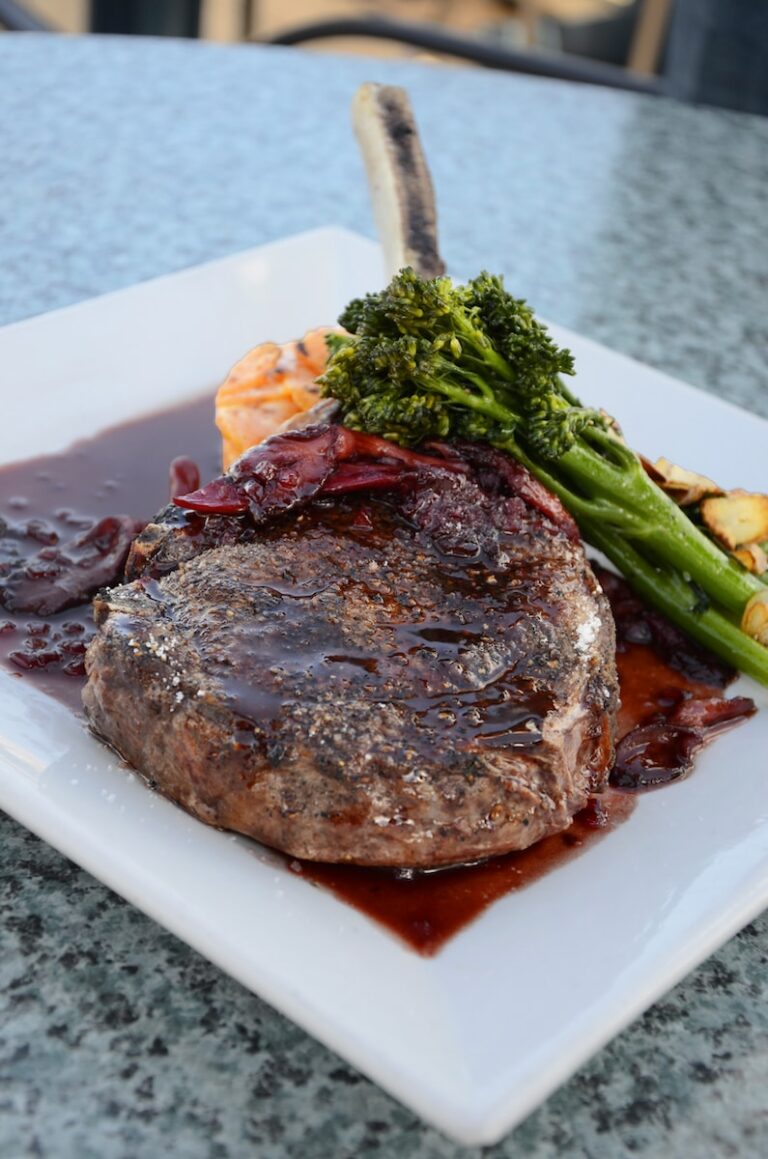Unveiling Mysteries: Acupuncture, Reiki, and Herbal Wonders
In the vast tapestry of healing, woven through periods of human history and cultures worldwide, lie threads of mystique and intrigue, alluding to time-honored traditions and age-old secrets. Among these, the venerable arts of acupuncture, reiki, and herbal medicine stand as majestic silhouettes against the backdrop of modern medical practices. Ensconced in lore, yet humming with contemporary relevance, these traditional therapies continue to mystify, charm and, above anything else, heal. Welcome dear readers, to an exploratory journey into these ancient healing paradigms – acupuncture, reiki, and the world of herbal wonders. Sit back and prepare to unravel their profound mysteries, decode their enigmatic language, and unfurl their secrets that have remained hidden in plain sight for centuries.
Table of Contents
- Unraveling the Mystery: Understanding the Science Behind Acupuncture
- Deciphering Reiki: A Closer Look at Energy Healing
- Nature’s Bounty: Exploring the Potency of Herbal Wonders
- Recommendations: Personalizing Your Healing Journey with Alternative Practices
- Q&A
- Final Thoughts
Unraveling the Mystery: Understanding the Science Behind Acupuncture
In the realm of traditional medicine, one might find an array of intriguing practices, all unique yet united in their deep-rooted origins across various cultures. Among them stands one of the most fascinating and enigmatic practices – Acupuncture. Despite being thousands of years old, the science behind acupuncture still grips our intrigue as we strive to uncover the secrets veiled beneath its complex tapestry.
Acupuncture primarily wields thin needles, puncturing certain spots on the body to stimulate sensory nerves under the skin and in the muscles. This results in our bodies producing natural substances including endorphines – the body’s natural painkillers. Moreover, a distinctive theory in traditional Chinese medicine underlining acupuncture revolves around the concept of Qi (pronounced ‘chee’). Qi is envisioned as a life force or energy flowing through the body, sustaining our health and vitality. When this flow is blocked or interrupted, it results in illnesses. Listed below are a few known benefits of acupuncture:
- Relief from Chronic Pain: Numerous studies confirm that Acupuncture can help ease types of pain that are often chronic such as neck pain, osteoarthritis pain, and lower back pain.
- Insomnia Treatment: Acupuncture has been proven to be beneficial in treating insomnia and other sleep disorders.
- Mental and Emotional Wellbeing: Acupuncture can effectively reduce anxiety and improve mood by stimulating the production of feel-good hormones in the body.
Undoubtedly, attempting to fully unravel the mystery shrouding acupuncture might be a daunting endeavor. Yet the beauty of this practice lies precisely within its enigmatic nature. As we delve deeper, we further realize how much we can still learn from ancient wisdom and the enchanting weave of knowledge it offers.
Deciphering Reiki: A Closer Look at Energy Healing
Derived from the Japanese words “rei” (Universal) and “ki” (life energy), Reiki is an ancient technique that involves the channelling of energy from the practitioner to the patient to enhance the body’s invisible, vital life force. With roots deeply embedded in Japan, Reiki is more than just an esoteric idea; it’s an alternative healing practice that tugs at Western curiosity through its Eastern charm. It’s believed to enhance the body’s natural healing abilities, reduce stress, and promote overall wellness.
Reiki Energy Healing can be broken down into three key facets:
- Energy transfer: In a typical session, the Reiki practitioner demands little to no physical contact. They simply move their hands above the body, subtly transferring energy. The idea is to manipulate the body’s energy fields to stimulate healing.
- Chakra balancing: Reiki healing works on the premise that the body has seven key chakra points. These are energy centers that play a massive role in our physical and emotional wellbeing. A blockage or disruption in these chakras can lead to various health issues, and through Reiki, these disruptions can be balanced.
- Relaxation and stress reduction: Reiki can be a deeply soothing technique. Just like meditation, it encourages a peaceful state of mind, potentially reducing stress, anxiety, and depression.
Some consider it a leap of faith, a headfirst dive into the esoteric. Others praise its effectiveness and vouch for the peace and wellbeing it infuses into their lives – a symbiosis of mind, body, and spirit. The premise of energy healing is rapidly gaining global traction, inspiring further exploration into a realm that blurs the line between science and spirituality.
Nature’s Bounty: Exploring the Potency of Herbal Wonders
Herbs truly are the unspoken wonders of the earth. Rich in expansions of different species and types, each with its unique properties and benefits, these plants are fascinating elements not only of the culinary world but also of natural healthcare. Herbal remedies have become a popular natural substitute for those seeking holistic wellness. The versatility of plants like Chamomile, Lavender, and Eucalyptus can treat a range of ailments, from a simple cold to severe migraines. Nettle, when incorporated in a daily diet, boosts the immune system while comfrey heals wounds and reduces inflammation.
Diving into the ancient practice of oriental medicine like Acupuncture, we unveil a unique approach to health and healing. Acupuncture, based on the energy theory, aims for the optimum flow of Qi, our body’s vital energy. Fine needles stimulate certain points in our body, encouraging the Qi flow and promoting healing. Reiki, another holistic healing technique, taps into our life force energy to promote emotional and physical healing. Like acupuncture, Reiki balances energy within, but it uses hands instead of needles. With such wonderful and diverse therapies available, the exploration into the mysteries of natural healing is an enriching and engaging journey. Embrace the beauty of herbs, the precision of Acupuncture, and the spiritual impact of Reiki to unlock a healthier, fulfilled life.
- Chamomile: Soothes insomnia and aids digestion.
- Lavender: Reduces anxiety and alleviates headaches.
- Eucalyptus: Promotes respiratory health, and relieves cold symptoms.
- Nettle: Boosts the immune system and fights inflammation.
- Comfrey: Heals wounds and reduces inflammation.
Recommendations: Personalizing Your Healing Journey with Alternative Practices
Embark on a new journey of personal healing and well-being with the time-honored practices of Acupuncture, Reiki, and the use of Herbal Wonders. Rediscover the organic mode of healing by swaying away from the conventional medicinal approach and embracing these alternative practices that hold a promise of holistic wellness. Acupuncture, an essential part of Traditional Chinese Medicine, operates on the belief that diseases are a result of energy blockages which can be relieved by strategically placing needles at certain points in the body.
On the other hand, Reiki originated from Japan and works on an energy-transferring method, where the practitioner rests their hands lightly on or over patient’s body to facilitate healing through energy flow. Whilst utilizing herbal wonders is instilling the sheer natural composition of herbs into your day-to-day life for an overall betterment. Some of the commonly used herbs are:
- Ginger – Potent anti-inflammatory, perfect for digestive issues
- Turmeric – Powerful antioxidant and can curtail inflammation
- Peppermint – Alleviate symptoms of Irritable Bowel Syndrome (IBS)
- Holy Basil – A natural adaptogen, aids the body to adapt to stress
Be it Acupuncture, Reiki, or Herbal remedies, all these practices focus on the unique needs of the individual and offer a personalized healing experience. Respecting the harmony between the body, mind, spirit, and its interaction with the environment, these practices target the root causes rather than merely treating symptoms, they guide the body’s capacity to heal itself.
Q&A
Q: What is the core essence of this article?
A: “Unveiling Mysteries: Acupuncture, Reiki, and Herbal Wonders” unravels the mystique behind ancient healing practices like acupuncture, Reiki, and the use of herbs, exploring their origins, methods, and benefits in healing the body and mind.
Q: What is Acupuncture?
A: Acupuncture is a traditional Chinese medicine that involves inserting thin needles at specific points on the body. It is believed to rebalance your energy flow, known as Qi, and enhance wellbeing.
Q: Can Acupuncture treat chronic pain?
A: Several research studies suggest that acupuncture can help manage certain pain conditions, including chronic back pain, knee pain, migraines, and arthritis pain. It’s always recommended to consult with medical professionals for personalized advice.
Q: What is Reiki?
A: Reiki is a Japanese technique for stress reduction and relaxation that also promotes healing. It largely involves “laying on hands” and is based on the idea that an unseen “life force energy” flows through us and helps us be alive.
Q: How does Reiki work?
A: The principles of Reiki believe that if one’s ‘life force energy’ is low, they are likely to get sick or feel stress. Reiki seeks to enhance this energy, promoting relaxation, reducing pain, speeding healing, and improving overall health and well-being.
Q: Could Reiki be a part of mental health treatment?
A: Research shows that Reiki can bring about significant relaxation and reduce stress and anxiety. It might be beneficial as an adjunctive therapy for managing mental health conditions like depression and anxiety, along with conventional treatment.
Q: What is the significance of herbal wonders?
A: Herbal wonders refer to the therapeutic uses of plants and their extracts. These have been used for thousands of years for their medicinal properties. Today, they are used in supplements, teas, tinctures, and myriad other health products.
Q: Are herbs safe and effective?
A: While herbs can offer health benefits, they are not regulated in the same way as standard pharmaceutical products. It’s important to use herbal products wisely, with the guidance of a healthcare provider, as they may interact with other medications and cause side effects.
Q: How can one find a reliable practitioner for these alternative therapies?
A: Some key steps include checking the practitioner’s credentials, asking about their experience and training, seeking recommendations from trusted healthcare providers, and noticing how you feel during your initial appointment. It’s crucial to find someone with whom you feel comfortable and safe.
Q: Is it advisable to replace conventional treatments with these alternative therapies?
A: While these therapies can aid in health and wellness, they are not a substitute for conventional care. It’s always advisable to discuss with your healthcare provider before starting any new treatment plan.
Final Thoughts
As we pull back the shroud of mystery surrounding acupuncture, Reiki, and herbal wonders, we delve into a realm where science, intuition, and Ancient wisdom intertwine. These intricate tapestries of healing arts offer not just remedies, but also a fresh perspective, challenging our conventional notions of health and medicine. They encourage us to relook at our bodies as more than just physical entities, acknowledging the subtle energy dynamics that play an integral part in our well-being. While there is still much to learn, the allure of these enigmatic practices—rich with potential yet shrouded in mystery—continues to captivate and fascinate us. As we continue to navigate these waters, raw curiosity guiding us like a compass, let us be open, accepting, and mindful. The journey of discovery does not end here, for every ending is but a new beginning in the endless journey of enlightenment.







